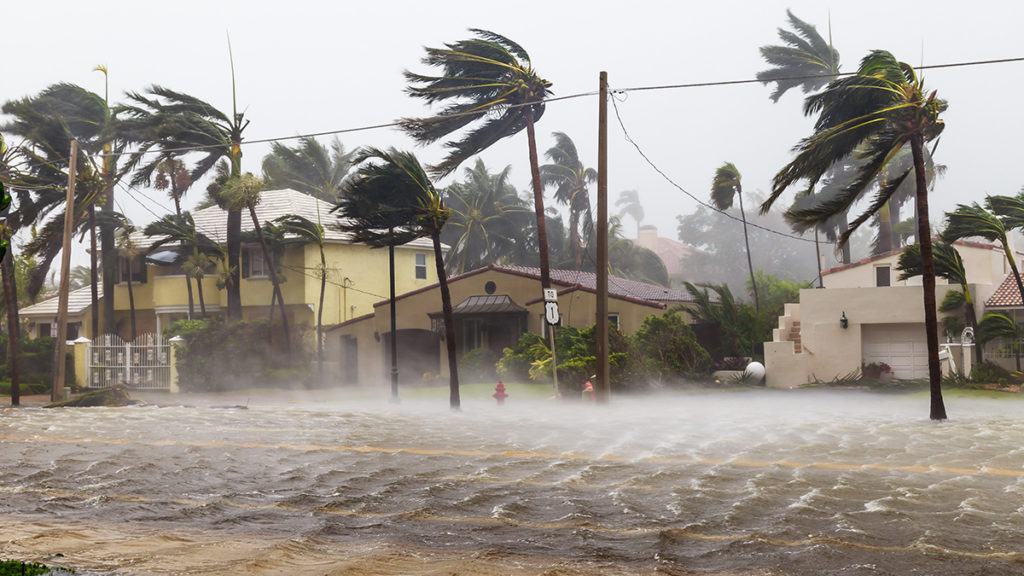3 Reasons to Prepare for a Hurricane When Skies Are Still Blue

June 1 marked the official return of the Atlantic hurricane season, when most (Atlantic) hurricanes typically form and emergency officials step up pleas for us to make storm preparations.
But whether you downplay the risks of a hurricane, you haven’t experienced a hurricane before or you simply become overwhelmed at the thought, you may tend to put those preparations off, waiting until the skies cloud up and weather warnings are deployed.
There are, however, convincing reasons not to postpone preparations. Here are three advantages to getting prepared early in the season:
Skip the Long Lines
If you wait until the last minute to purchase emergency provisions, you risk having to wait in long lines to buy them (if you find them at all). Take any hurricane. As the storm approaches, media outlets show images of shoppers scrambling for last-minute purchases of food and water.
Buying your emergency essentials now may help keep you out of a similar situation. Ready.gov suggests some basics1:
- Water, one gallon per person per day (three-day minimum)
- Food, a three-day supply of no-cook foods
- Flashlights, with extra batteries
- Hand-crank or battery-powered radio, with extra batteries
- NOAA weather radio
- First-aid kit
- Cellphone charger with a backup battery
Refine Your Emergency Plans
Another great benefit of starting hurricane plans early is that you can test and refine emergency procedures before you need them. Here are some measures Ready.gov suggests you put in place:
- Develop an evacuation plan: Identify a location where family will meet within your neighborhood, and a second one immediately outside of it, the agency says.2 Contact local officials to identify community evacuation routes, and then do a test run.
- Create a family communication plan: Designate an out-of-area contact that household members can each notify when they’re safe. Program this contact and other emergency numbers into cellphones, and create a paper version to keep handy.
- Make special plans for special needs. Ready.gov suggests customizing your plan to consider the needs (special foods, medicines, etc.) of those who may need extra support in an emergency: older family members, those with disabilities, infants, pets, etc.3
More Time to Fortify Your Home
Making hurricane preparations early can also afford you the time to make home improvements that may help defend your property during a storm. The Federal Alliance for Safe Homes (FLASH) says there are “affordable methods and products” that can help minimize hurricane damage4, including:
- Bracing garage doors (about $150, according to FLASH)
- Installing storm shutters on windows and sliding glass doors ($7 to $15/foot, says FLASH)
- Applying wood adhesive where the roof deck and rafters intersect
- Applying a peel-and-stick water barrier to roof deck joints (done when re-roofing; about $750, FLASH says)
(Always use a reputable local contractor or service provider for these types of projects.)
Who is Answer Financial?
Preparing for a hurricane is essential, but purchasing adequate hurricane coverage when you move to a hurricane region should be step #1. At Answer Financial, we’re happy to talk with you about the right coverage for your needs. Call 1-888-737-7000 to talk about flood protection with one of our insurance experts now or visit our site to quickly compare rates and customize coverages from multiple companies.
June 11, 2021
Sources:
1. “Build a Kit,” Ready.gov, https://www.ready.gov/kit
2. “Evacuation,” Ready.gov, https://www.ready.gov/evacuation
3. “Make a Plan,” Ready.gov, https://www.ready.gov/plan
4. “Most Americans incorrectly believe wind speeds determine hurricane evacuation,” FLASH.org, https://www.flash.org/hurricane-season/pdf/NHC-News-Release.pdf